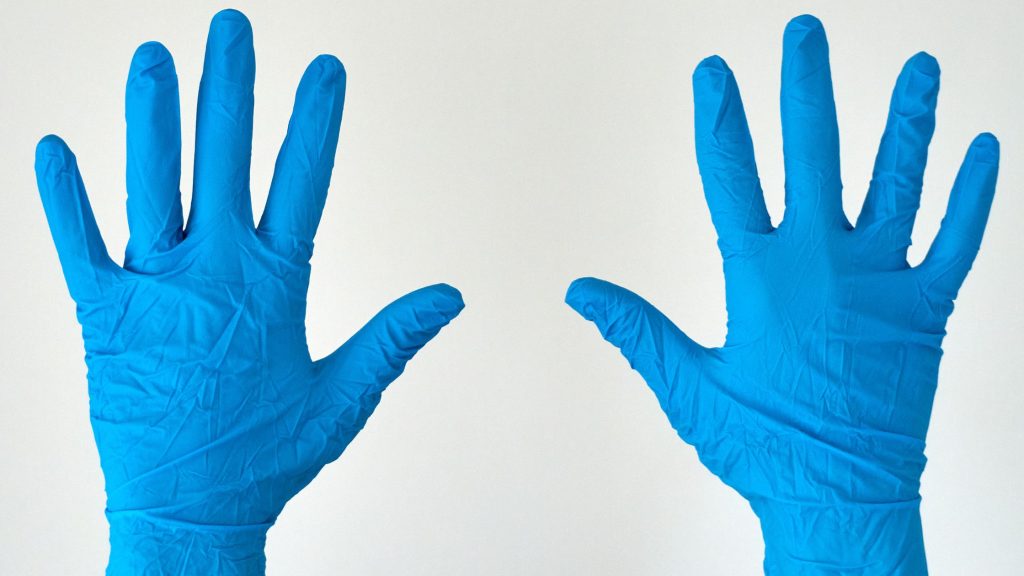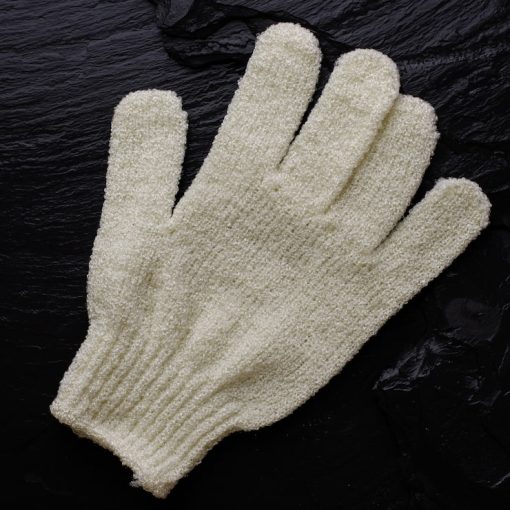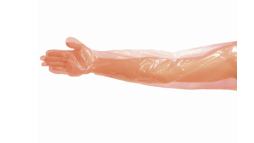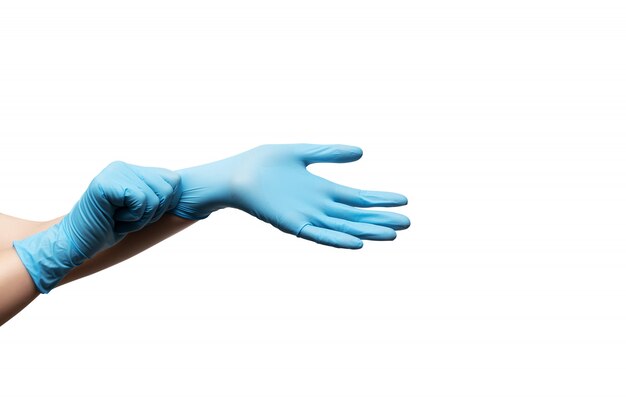Do you know that the simple pair of gloves you wear can make a huge difference in safety and hygiene? Whether you work in healthcare, laboratories, or industrial settings, the right gloves protect your hands from germs, chemicals, and injuries. Among the many options available, nitrile gloves have become a popular choice worldwide. But why are they so widely used, and what makes them special?
In this blog, we will explore the top 5 nitrile gloves uses, helping you understand why these gloves are essential in healthcare and industry, and how they can keep you safe while performing your daily tasks.

What Are Nitrile Gloves?
Before diving into the top uses, let’s first understand what nitrile gloves are. Nitrile gloves are made from synthetic rubber, which makes them strong, durable, and resistant to chemicals. Unlike latex gloves, they are ideal for people with latex allergies.
- Durability: Nitrile gloves are less likely to tear or puncture, making them suitable for long tasks or handling sharp objects.
- Chemical Resistance: They protect your hands from many chemicals, cleaning agents, and oils.
- Comfort: Modern nitrile gloves are soft, flexible, and fit snugly on your hands for better control.
Now that you know what makes nitrile gloves unique, let’s look at their top uses.
1. Healthcare and Medical Settings
One of the most common nitrile gloves is in healthcare. Doctors, nurses, and lab technicians rely on nitrile gloves to protect themselves and their patients.
- Protection Against Germs: In hospitals and clinics, you encounter bacteria, viruses, and other pathogens daily. Nitrile gloves act as a barrier, reducing the risk of cross-contamination.
- Allergy-Friendly Option: Many medical workers are allergic to latex. Nitrile gloves are a safe alternative that does not trigger allergic reactions.
- Precision Tasks: From checking vital signs to handling surgical tools, nitrile gloves allow you to perform tasks that require accuracy without sacrificing protection.
If you work in a healthcare setting, using nitrile gloves is not just about compliance; it’s about keeping yourself and others safe every single day.
2. Laboratory and Scientific Work
Scientists, researchers, and lab technicians need gloves that are strong, chemical-resistant, and reliable. Nitrile gloves are perfect for laboratory environments.
- Chemical Handling: When you work with acids, solvents, or cleaning chemicals, nitrile gloves provide superior resistance compared to latex or vinyl.
- Preventing Contamination: In experiments, even tiny contaminants can affect results. Wearing nitrile gloves ensures that your samples remain clean.
- Comfort During Long Hours: Labs often require long periods of work. Nitrile gloves are flexible and comfortable, allowing you to concentrate on your tasks without distraction.
If you handle chemicals or delicate samples regularly, nitrile gloves are a must-have in your safety gear.
3. Food Preparation and Handling
Did you know nitrile gloves are widely used in food service too? They are not just for medical or industrial use, they help keep your hands and the food safe.
- Hygiene First: Wearing nitrile gloves prevents bacteria from your hands from contaminating food.
- Durable and Puncture-Resistant: Nitrile gloves are strong enough to handle knives, utensils, and other kitchen tools without tearing easily.
- Allergen-Free: Many food handlers prefer nitrile gloves because they are latex-free, reducing the risk of allergic reactions.
Whether you’re cooking in a restaurant, packing food, or working in a catering service, nitrile gloves are an excellent choice for maintaining hygiene and safety.
4. Industrial and Manufacturing Tasks
In industrial environments, your hands are exposed to oils, chemicals, sharp tools, and heavy-duty equipment. Nitrile gloves provide reliable protection in these situations.
- Chemical Resistance: Nitrile gloves protect against oils, paints, adhesives, and cleaning agents commonly used in factories and workshops.
- Strength and Durability: Unlike latex or vinyl gloves, nitrile gloves resist tears, punctures, and abrasions, keeping your hands safe even in tough conditions.
- Better Grip: Many nitrile gloves come with textured fingers, making it easier to hold tools and materials securely.
If your work involves assembly lines, manufacturing, or handling hazardous substances, nitrile gloves are a practical and safe option.
5. Cleaning and Maintenance Work
Whether you are cleaning your home, office, or an industrial facility, nitrile gloves make the job safer and easier.
- Protection from Chemicals: Cleaning agents, bleach, and disinfectants can irritate or damage your skin. Nitrile gloves act as a strong barrier.
- Durable and Comfortable: You can clean surfaces, scrub, and handle tools without worrying about gloves tearing or slipping.
- Versatile Use: From janitorial work to maintenance tasks, nitrile gloves protect your hands and make your work more hygienic.
Even simple tasks like cleaning can become safer and more comfortable with the right gloves.
Tips for Using Nitrile Gloves Safely
Using gloves is not enough; you need to use them correctly. Here are some simple tips:
- Check for Damage: Always inspect gloves for holes or tears before use.
- Use the Right Size: Gloves that are too tight or too loose can cause discomfort or reduce protection.
- Do Not Reuse Single-Use Gloves: Dispose of gloves after each task to prevent contamination.
- Wash Hands Before and After: Clean hands before wearing gloves and after removing them to maintain hygiene.
Conclusion
Nitrile gloves have proven themselves to be versatile, strong, and reliable across healthcare, laboratories, food handling, industry, and cleaning. From protecting your hands against chemicals to preventing contamination, their benefits are clear. By choosing nitrile gloves, you can work safely and confidently in any environment.
For high-quality nitrile gloves and a wide range of protective gear, Livingstone International is a trusted choice. Our products are designed for comfort, durability, and safety, helping you stay protected no matter your profession. Check out our collection on our website and ensure your hands get the best care possible.
Faqs:
1. What are nitrile gloves made of?
Nitrile gloves are made from synthetic rubber, which makes them strong, flexible, and resistant to many chemicals. They are a great alternative for people with latex allergies.
2. Are nitrile gloves better than latex gloves?
Nitrile gloves are stronger and more resistant to chemicals than latex gloves. They are also allergy-friendly. Latex gloves are more flexible and provide better tactile sensitivity for precise tasks.
3. Can nitrile gloves be used in food handling?
Yes! Nitrile gloves are safe for food handling. They prevent contamination, are strong enough to handle kitchen tools, and are latex-free, reducing allergy risks.
4. How long can you wear nitrile gloves?
Nitrile gloves are meant for single-use. Wear them only during one task and dispose of them after use to maintain hygiene and prevent contamination.
5. Are nitrile gloves safe for chemical handling?
Yes. Nitrile gloves provide excellent protection against many chemicals, oils, and cleaning agents, making them suitable for laboratories and industrial work.
6. How do I choose the right size of nitrile gloves?
Gloves should fit snugly without being too tight. Proper sizing ensures comfort, dexterity, and maximum protection while you work.




